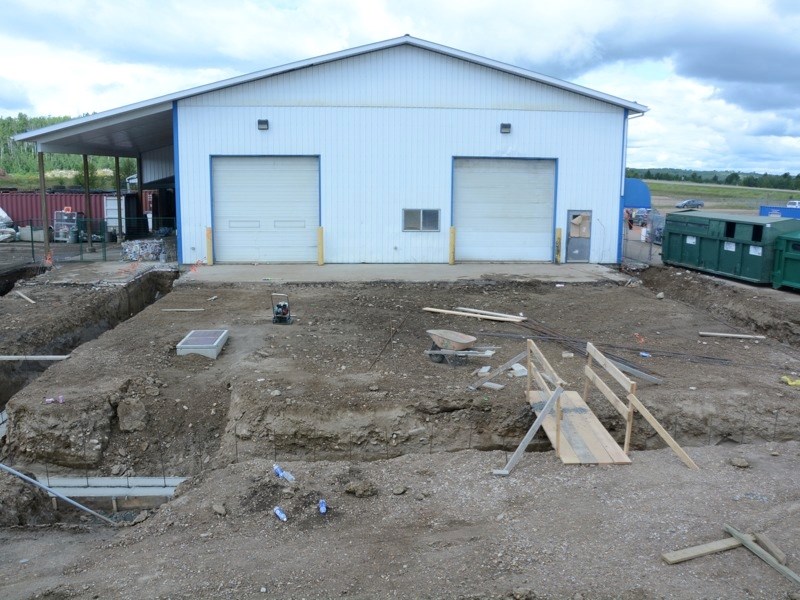The Athabasca Regional Waste Management Services Commission will soon have a new building at its recycle and transfer site facility to protect materials that have some resale value from the damaging effects of being left outdoors.
The excavation is just starting, and construction crews should have some foundation walls erected this week if the weather holds up.
“We are adding onto our facility to better serve,” said Rob Smith, manager of the Athabasca Regional Waste Management Services Commission.
The addition to the current facility will be 3,600 square feet (60 feet by 60 feet) and will be for recycling and sorting purposes. It comes with a price tag of just over $300,000 to build, according to Smith.
Smith said they hope the project will be completed by the end of September.
By storing materials like cardboard inside and preventing them from getting rained on, Smith said the commission will no longer lose money for having a certain amount of water in the material when it goes to end processing facilities in Tacoma, Washington, and Springfield, Oregon.
In Tacoma and Springfield, said Smith, “They take the material down to a pulp, and they’ll be making new product such as paper towels and stuff like that.”
But first the material — paper, cans, cardboard, tin cans and plastics — is baled at the Athabasca site and compacted into a 450-kilogram “densified product” in preparation for shipment to the end processors in the U.S.
The Athabasca facility processes an average of 1,100 tons per year in materials.



